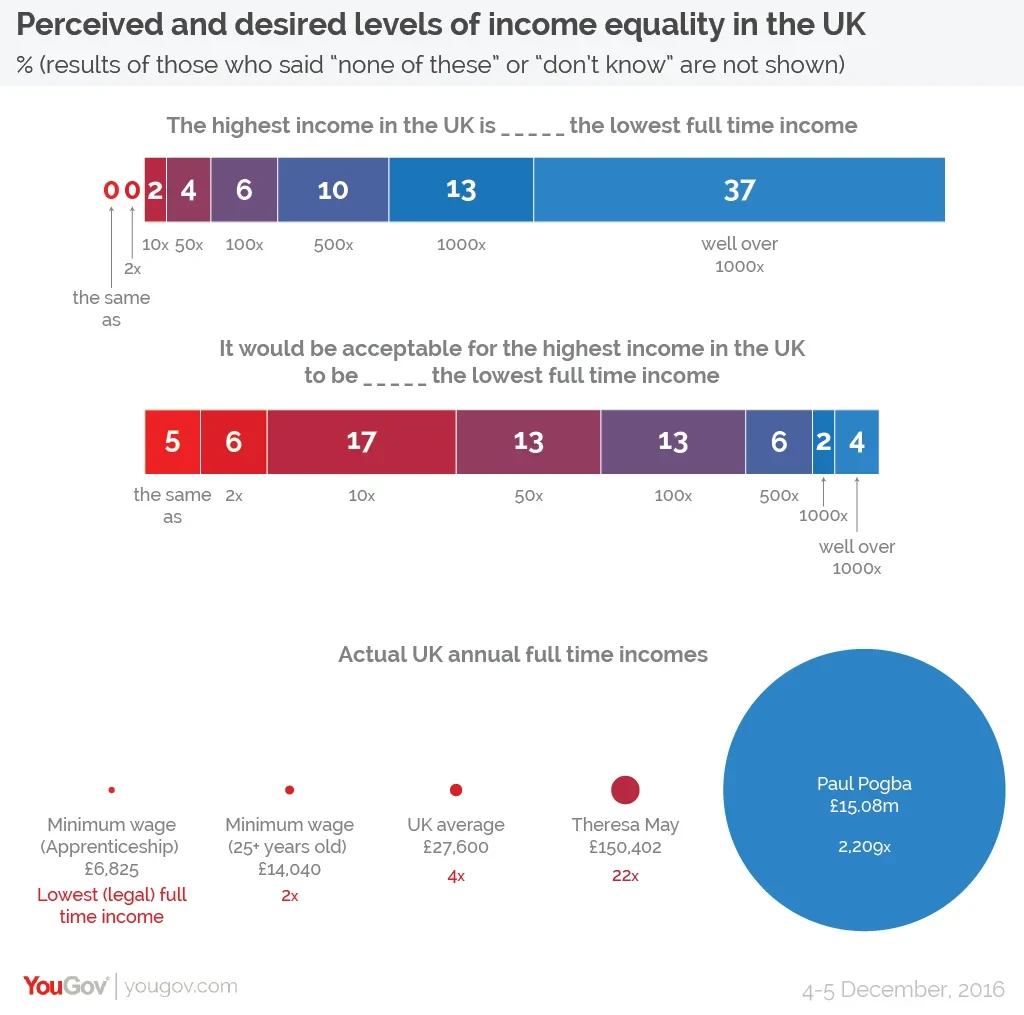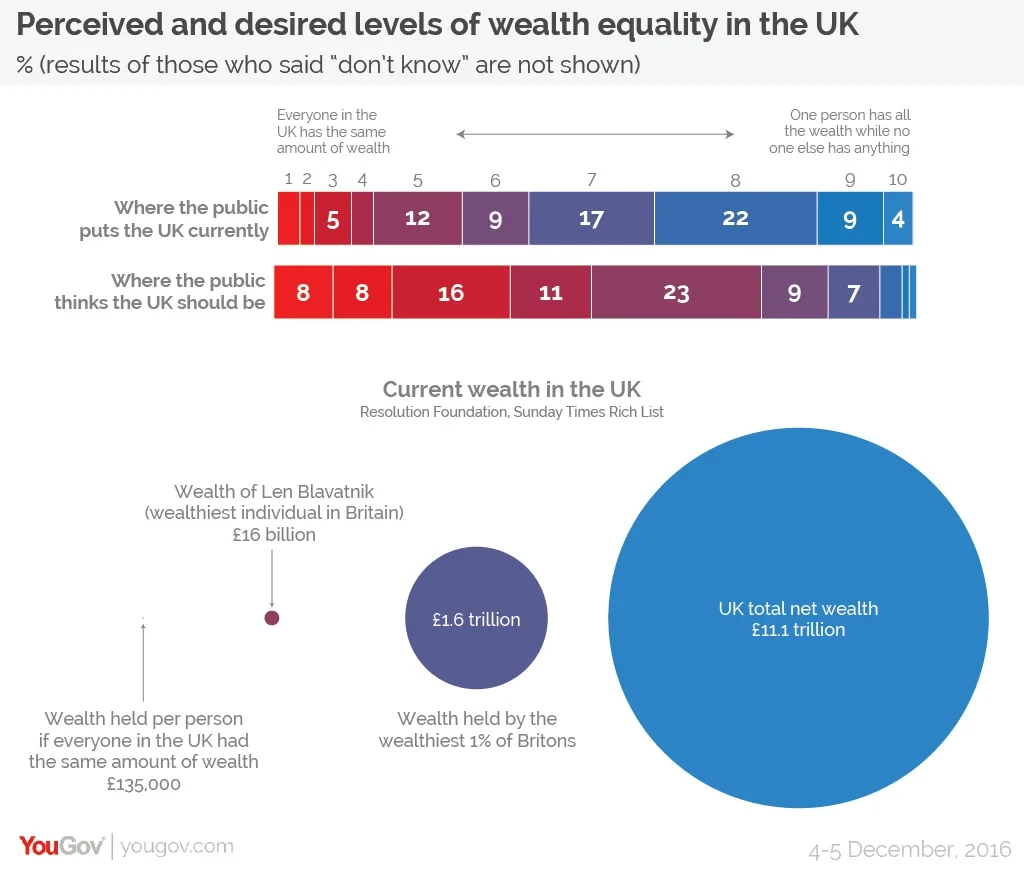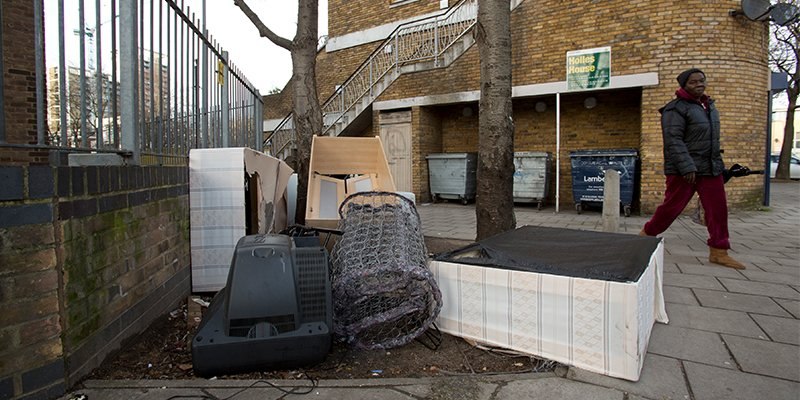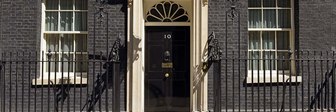YouGov-Cambridge research suggests a clear sense that Britain is unequal – but how would people change it?
The Institute for Fiscal Studies recently announced that income inequality – the gap between how much the richest and poorest households earn – has fallen in the UK since the Great Recession. The body said that increasing levels of employment and falls in the income of Britain’s top and middle earners were behind the change.
Nevertheless, income inequality in the UK is still relatively high, and Britons seem to be aware of it. In December 2016, research for the YouGov-Cambridge Centre revealed that the largest proportion of Brits (37%) believe that the highest income in the UK is well over 1,000 times the lowest full time income.
In this they seem to be on the money, as it were: the lowest (legal) full time income in the UK is £6,825 – the annual amount an apprentice working 37.5 hours on minimum wage would earn. By contrast, others earn a great deal more. For instance, Manchester United midfielder Paul Pogba earns £15.08m a year – 2,209 times higher than a full time apprentice on the minimum wage.

Our research shows that many Britons think that there should be some form of limit on how much high earners should take home. One in six (17%) believe that the largest income should only be 10 times higher than the lowest, one in eight (13%) reckon there should be a 50:1 ratio while the same proportion (13%) think the top earners should be paid 100 times the amount of those on the lowest full time income. Fewer than one in twenty (4%) believe that the highest income in the UK should be well over 1,000 times higher than the lowest.
Wealth inequality
However, even if every single person in the UK earned exactly the same amount, the country would still be unequal in terms of the distribution of wealth. As the Resolution Foundation recently found, wealth – such as property ownership – is divided up far less evenly than income in the UK, and the country's wealth gap is now widening after a decade-long fall.
Britons are aware that wealth is distributed unequally. We asked the public to describe how Britain's wealth is currently divided on a 1 to 10 scale, with 1 being if everyone had the same amount of wealth and 10 being if one person had all of the country's the wealth and no-one else had anything. The largest proportion of Brits rated the UK's wealth distribution as a 7 or 8 (17% and 22% respectively).
However, it is a different picture when we asked how they thought wealth should be distributed in the UK. Half (50%) opted for a number between three and five on the scale, with just 10% choosing between seven and eight.

Photo: PA images








